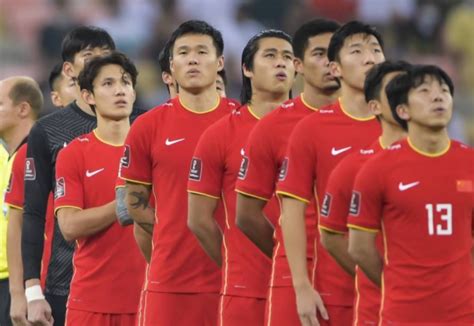国足归化最新消息新闻
Latest Updates on Naturalization of Foreign Players in Chinese Football
As of the latest reports, the naturalization of foreign players in Chinese football, particularly in the national team, has been a subject of significant interest and debate. This practice involves foreignborn players obtaining Chinese citizenship to represent the country in international competitions, notably the FIFA World Cup and other prestigious tournaments.
The trend of naturalizing foreign players in Chinese football gained momentum in recent years as part of broader efforts to enhance the competitiveness of the national team. Historically, Chinese football has faced challenges in achieving success on the global stage, prompting authorities to explore alternative strategies to strengthen the team.
Several notable developments have occurred in the realm of naturalization in Chinese football:
- Regulatory Changes: The Chinese Football Association (CFA) has introduced new regulations governing the naturalization process, outlining eligibility criteria and procedural requirements for foreign players seeking Chinese citizenship.
- Player Selection: Chinese clubs have actively recruited foreign talents with the intention of naturalizing them for national team representation. These players often possess desirable skillsets and international experience, which can bolster the competitiveness of the Chinese team.
- Public Debate: The naturalization of foreign players has sparked debate among football enthusiasts and stakeholders in China. While some view it as a pragmatic strategy to elevate the national team's performance, others express concerns about the potential implications for domestic player development and team cohesion.
- Performance Impact: The impact of naturalized players on the performance of the Chinese national team remains a subject of speculation. While their inclusion may enhance the team's overall quality, success on the field ultimately depends on various factors, including coaching, teamwork, and tactical execution.
As the naturalization of foreign players continues to shape the landscape of Chinese football, it is essential to consider the following guidance and recommendations:
- Transparency and Fairness: The naturalization process should be transparent and fair, with clear criteria established for player eligibility. This ensures that deserving candidates are selected based on merit rather than arbitrary factors.
- Investment in Youth Development: While naturalized players can provide immediate benefits to the national team, longterm success hinges on the development of homegrown talent. Investments in youth academies, grassroots programs, and coaching infrastructure are crucial for nurturing the next generation of Chinese football stars.
- Strategic Planning: Chinese football authorities should adopt a strategic approach to naturalization, considering the longterm implications for the sport's development. This involves balancing the shortterm goal of competitive success with the broader objectives of player development and grassroots engagement.
- Community Engagement: Efforts to naturalize foreign players should be accompanied by initiatives to engage local communities and foster a sense of national pride in Chinese football. This can help cultivate a supportive fan base and strengthen the sport's cultural significance.

In conclusion, the naturalization of foreign players in Chinese football represents a multifaceted issue with implications for performance, governance, and grassroots development. By navigating these challenges thoughtfully and strategically, Chinese football can strive for success on the global stage while fostering a vibrant and inclusive sporting culture.